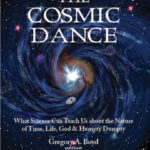We run our website the way we wished the whole internet worked: we provide high quality original content with no ads. We are funded solely by your direct support. Please consider supporting this project.
What is the significance of Acts 15:7?
At the Jerusalem council, “Peter stood up and said to them, ‘My brothers, you know that in the early days God made a choice among you, that I should be the one through whom the Gentiles should hear the message of the good news…’”
The tense of the verb that locates God’s “choice” in “the early days” strongly suggests that it wasn’t made in the eternal past as the classical view asserts. The God of the possible decides among possibilities as he moves along with us in time. After considering every variable, the Lord decided that choosing Peter rather than anyone else to initially bring the Good News of Jesus Christ to the Gentiles best fit his sovereign purpose.
If everything is settled from all eternity in the mind of God, however, there is nothing really left to decide in time. Everything in Scripture, as well as in our own experience, which suggests that God makes decisions or reverses previous decisions as he moves with us into the future must be judged as mistaken.
Category: Q&A
Tags: Open Theism, Q&A
Topics: Open Theism
Verse: Acts 15
Related Reading

If God Can’t Control, How Can I Trust Him?
Question: If God can’t always answer our prayers for healing, for example (and I completely understand why—free will etc), then HOW can he promise to bring good out of the bad things that happen? Surely he is powerless to do that too? And if he can bring good why can’t he therefore heal in the…

How can we determine what is and is not “open” about the future?
Question: You believe that the future is partly open. You’re writing has pretty much convinced me this is true, but I’ve still got some serious questions about it. For example, how does anyone determine what part is open and what part is not? If we can’t determine what is and is not open, isn’t the…

How do you respond to 2 Samuel 16:10?
David says of Shimei’s cursing him, “If he is cursing because the Lord said to him, ‘Curse David,’ who then shall say, ‘Why have you done so?’” Some compatibilists cite this text to suggest that David regarded evil deeds, including cursing, as taking place in accordance with the sovereign will of God. If we accept…

Is Free Will compatible with Predestination?
Question: Isn’t “freedom” simply our ability to do what we want? And if this is so there seems to be no incompatibility between saying that a person is “free” on the one hand, but predestined (or at least foreknown) by God, on the other. But why do you say that freedom is not compatible with…

Roger Olson’s Review of The Cosmic Dance
Today we wanted to share a review of The Cosmic Dance by esteemed theologian Roger Olson. You can check out an excerpt below or you can read the whole review here. You can place an order for The Cosmic Dance here. The Cosmic Dance is Greg’s (and friends’) attempt to present the case that the best contemporary science supports viewing…
